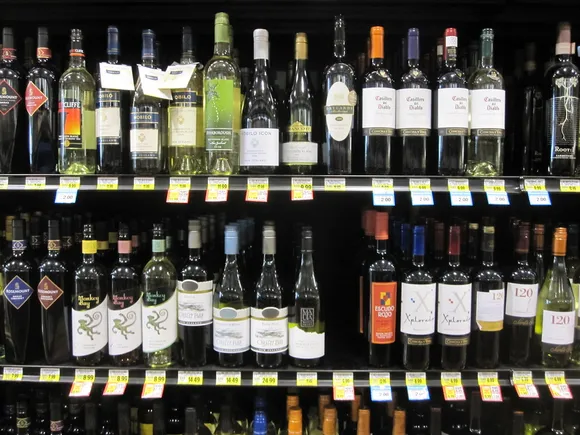Dive Brief:
- A shareholder lawsuit filed this week alleges Constellation Brands misled investors by wrongly boasting about the momentum of its wine and spirits business, which saw net sales decline 7% in the last 12 months.
- According to the suit filed in New York by shareholder Jeff Mason, Constellation made “false and misleading statements that failed to disclose material adverse facts” about the dire state of its wine sales between April 2024 and January 2025.
- This month, Constellation sold off several of its lower-priced wines with an aim to focus solely on premium offerings. The shareholder allegations claim the company conspired to inflate its performance in the category ahead of the sale.
Dive Insight:
Constellation thinned out its wine portfolio as demand drops with consumers moderating alcohol consumption or moving to ready-to-drink libations outside traditional wine and beer categories. Its wine and spirits segment could see a sales drop of 17% to 20% in its current fiscal year, the company reported.
The lawsuit alleges that, before the sale, Constellation misled investors with earnings statements that suggested the company’s wine holdings were set for growth. CEO Bill Newlands told investors in an earnings call in April 2024 it was working to boost the price mix and media spending on its wine brands, which the lawsuit claimed was “materially false and misleading.”
The suit also alleged the company spent over $668 million on stock buybacks at an artificially inflated price and accused five company executives of enriching themselves through “bonuses, stock options or similar compensation from Constellation.”
Mason, the shareholder plaintiff, is seeking damages as well as a change to Constellation’s corporate governance structure that would give shareholders more of a say over company policies.
Constellation did not respond to a request for comment.
Scrutiny into Constellation’s wine segment comes as the alcohol giant faces uncertainty in its main business, beer. President Trump’s tariffs are weighing on the category as the majority of its brews, like Corona and Modelo, are imported from Mexico.
In the company’s most recent earnings call this month, Newlands said threats of deportation and layoffs among Hispanic consumers, who make up about half of its consumer base, are eating into the company’s bottom line.





